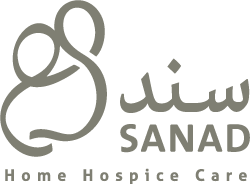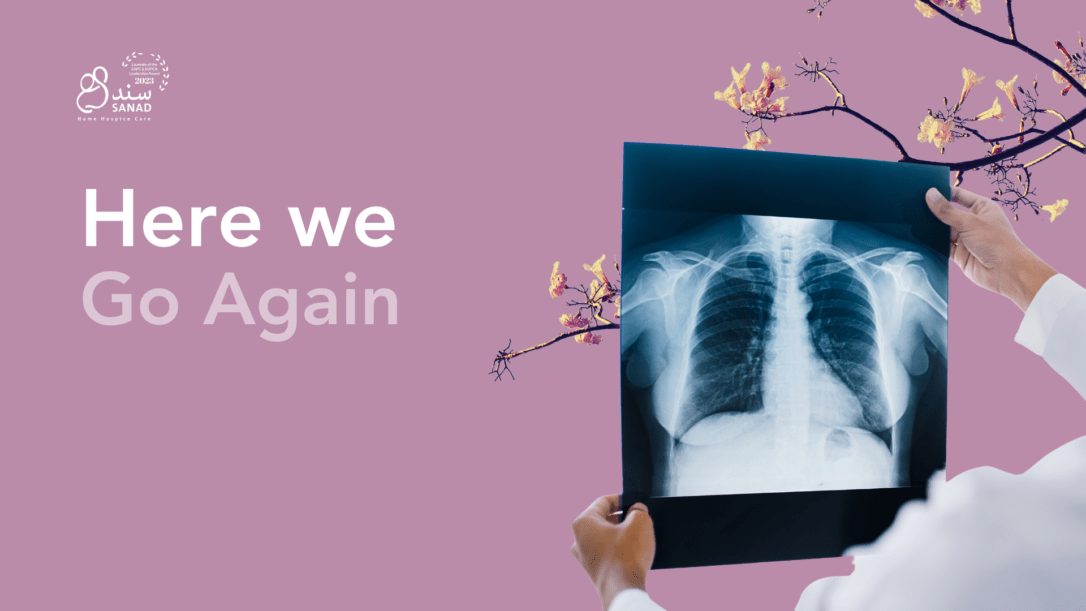Here we go again. At least twice a year, we would go through screening for different diseases. Sometimes, it was the heart, that pain in the chest, was it a muscular issue or a serious heart problem? The pain in the intestines, was it colon cancer or was it a simple hiccup that didn’t come out right? A battery of tests later, we would put it behind us till the next episode. It wasn’t that Khalil was a hypochondriac. As a doctor, and a very good one at that, he knew first hand that our body gave us warning signals when something was wrong and that we had better follow up on them.
This time around, it was bloating and abdominal discomfort. Khalil came back from a yearly trip to the States filled with smoothies to relieve the discomfort, and descriptive long distance calls describing the usual symptoms. So it was the customary doctors’ visits and the usual CT scan. I decided to go with him for the CT scan, if only to maintain my impeccable attendance record. In the waiting room, Khalil had to down the usual unpotable prep but not without making jokes about it. He kept offering everybody in the waiting room at least one cup of the dreadful drink and would generously insist, making us all laugh. He even tried to sell me some of it. I guess he didn’t expect what was in store for him.
Finally, when all the liquid was downed, with a great sense of accomplishment, he went in for his CT scan, mostly expecting that like all the previous times and false alarms, he would come out of this with a minimal sentence, maybe a gall bladder or a cyst.
It was the middle of the week and classes were in session so I capitalized on the time he was gone to see to my batch of corrections. No time to waste here. Commitments. Grading. The world would come to a halt if I did not get to work. A hamster programmed into the American production culture. A minute wasted is a minute that cannot be recovered.
Khalil came back and said that the x-ray technician thought he may have seen something suspicious and wanted to explain it to him. He asked me to go with him. As a doctor, he had the advantage of getting an immediate reading of the CT scan. Typically, Khalil would have heard out the technician and then informed me of what he had said. Not this time. We went into the room adjacent to the CT scan where Khalil had been lying down a few minutes earlier as his body was exposing the dreadful evil lurking inside it, defining the rest of his life, etching the final chapters of an end he was not ready for. Khalil loved life, loved living, and was worthy of living. The technician pointed at the abnormal imaging and described what he saw, the bare facts, and suggested we show it to the doctor. Again, the advantage of being in the inner medical circle was an almost immediate visit to the doctor. I was still not worried. Hadn’t we done this so many times before? Certainly it was nothing. Certainly the usual over-cautiousness.
We went to see the doctor with the expectation of a biopsy as the next step. A biopsy could be positive or negative. There was an ‘either or’, not a ‘certainly’. In a matter of fact way, the doctor, who was also a friend, spelled out the verdict. Pancreatic cancer. No need for a biopsy. As clear as the sun. as final as it gets, no reprieve. Khalil excused himself abruptly. “Doctor what are you telling me? What does this mean?” I asked. Why do we ask questions that we don’t want to hear the answer to? Nothing could be done. It was bad. Very bad. No ‘either or’, no reprieve. All of a sudden the world went blank and life would never be the same again. Khalil had suddenly shifted from 100% doctor to 50% doctor and 50% self-deceiving patient.
Take us back to when we didn’t know. Take me back to when he didn’t know. Take me back to when my main role was protecting my kids from what I then thought were impossibly difficult experiences. Take me back to when it wasn’t something that could happen to us. Take me back to when nothing was final final, when things could always be fixed and plan B was always an option. To when it was simple but it seemed overwhelming. I didn’t even know how overwhelming overwhelming could be.
Oncologist.
Chemotherapy
“Hit me and hit me hard. Give me the strongest protocol. I want to live,” he said. And the cycle of chemotherapy sessions began.
Came the time when the disease took over, much as he fought it, when the hospital visits were becoming more interconnected and the beeping of the Baxter infusion pump measuring our life in the intervals between beeps. And I thought that was overwhelming. I still didn’t know what overwhelming was.
The time for the big questions came. Hospital stays or hospice? We are made to believe that giving the patient the best care is to keep him safe at the hospital. Isn’t that where emergency service is available? Isn’t that where you press the button and the nurse rushes to your service? Yes, doing right by Khalil would be to provide him with hospital care, first class services. Taking care of him at home definitely would not offer him all the hospital could.
How wrong.
When someone is suffering, the hospital becomes a prison. You want to do your time and be on good behavior so that they might will let you out early… you wouldn’t go there of your own free will. You don’t have the comforts of home. Would Khalil prefer a hospital nurse that happens to be on that shift, no matter how humane she may be, to provide for his needs, or the consistent sweet caring angelic face of SANAD's nurse? Would Khalil prefer to be in a hospital bed or in his own bed, in his comfort zone his family giving him that sip of water, that nutritional ice cube when food was no longer an option? Hospitals cure you and you go back home. Here was no cure. The hospital wasn’t going to fix Khalil and send him back home. Our job now was to concentrate on Khalil’s comfort and needs and that is what hospice services provide, be it medical, emotional, psychological, equipment, etc.
But in our culture we do not talk about death. It is the unmentionable skeleton in the closet that we fear, the elephant in the room, so how was I to introduce Khalil to the possibility of hospice services? Wouldn’t that be telling him he was dying? I can’t explain why the introduction of hospice was not as difficult as I thought it would be. Maybe it was because Khalil knew and loved Lubna Izziddin, the founder of SANAD. Maybe it was because Khalil’s medical expertise informed him that it was wise to do so.
SANAD gradually and non-invasively became part of our daily life, providing for all our needs. Together, our job was to relieve or rather alleviate the symptoms, to hold his hand and make him feel he was not alone in this, that we were all with him, carrying him through to try to improve the quality of his last days.
Peace
Dignity
Comfort
As a person who would have previously opted for hospital care, the decision came naturally, organic product of the development of the disease. It was normal. We realized as a family, that with SANAD, Khalil could spend his last days in the comfort of his own home, as peacefully as possible under the circumstances, and most importantly with dignity. Yes, with dignity. Cancer is a mean disease that pounces on its victim unannounced, strips him of the familiar, disrupts, disqualifies, un … a disease of dis and un. A series of negative prefixes
dis-,as in discomfort
il- as in illogical
im as in ……………..
But the dignity of the dying should be among the untouchables, where there is no room for the dismantling that cancer unrelentingly engineers. Hospice care provides that for the terminally ill. For the family, it leaves them with the sense that when merciless cancer strikes their loved one, they could make it, not better, but less bad by caring for their loved one. It relieves some of the pain of parting that at least we could give them that. That cancer couldn’t un or dis or im. And that is what a hospice service affords.

